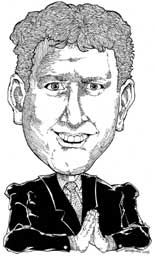 How does knowledge of the doctrine of election encourage/help those who are praying for lost loved ones? So many times, when discussing this doctrine for the first time, people feel discouraged and even desperate over the fact that someone that they love may or may not be elect. How can the truth of God’s election encourage someone who is praying that God will save a loved one?
How does knowledge of the doctrine of election encourage/help those who are praying for lost loved ones? So many times, when discussing this doctrine for the first time, people feel discouraged and even desperate over the fact that someone that they love may or may not be elect. How can the truth of God’s election encourage someone who is praying that God will save a loved one?
I would like to answer your question by telling you a story from history. In the 4th century, there was a very devout Christian lady named Monica. She was married to a prominent man who did not share her Christian faith. He was often very cruel to her, causing her physical abuse. Every day she would go to the church and pray for his conversion. Later on in his life, he did in fact become a Christian.
Yet the pain and anguish her husband caused her seemingly paled into insignificance compared to that which she suffered because of her oldest son. Her mother’s heart was broken, time after time, seeing the reckless life her son was leading. He not only did not share his mother’s faith but would join himself to anti-Christian groups, using his sharp mind to seek to convince others to follow him. He lived a very immoral life. He had a mistress but left her for another and had a son born out of wedlock, named Adeodatus. Monica was not personally able to convince her son of the truth claims of Christianity, but she determined never to stop praying that he would turn to the Lord. Continue reading

 Thanks for your prayers regarding tonight’s radio show. I think it went well. Callers asked some great questions and I think I was able to say enough to point people in the right direction biblically.
Thanks for your prayers regarding tonight’s radio show. I think it went well. Callers asked some great questions and I think I was able to say enough to point people in the right direction biblically. In addition to tonight’s hosting of the Andrew Tallman show, I have just been asked to do the same on Thursday (May 26) also at the same time,
In addition to tonight’s hosting of the Andrew Tallman show, I have just been asked to do the same on Thursday (May 26) also at the same time,